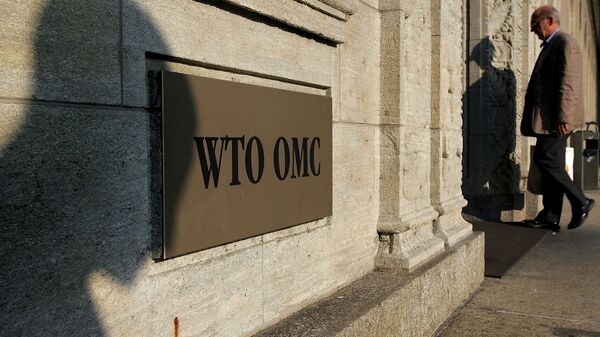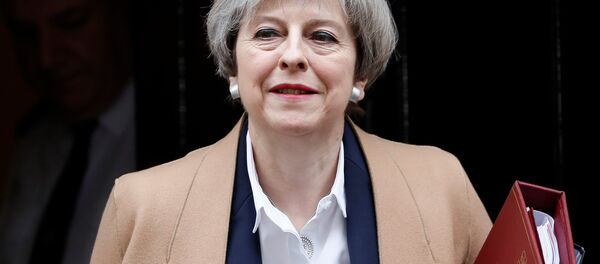Sputnik: Britain and the European Union formally filed for divorce at the World Trade Organization on Tuesday, following many months of diplomatic preparations to smooth the way for the historic move. How significant is this? And what effect will this have on Brexit?
Connal Parr: I mean it’s obviously extremely significant because it’s finalizing the process by which the UK is making its way to the exit door of the European Union, but it must be said that they’ve outlined these steps for some time. Obviously, the key date in the calendar for everyone is March 2019 when officially that will be when that ‘clean break’ comes. It’s a very important time; I think what’s concerning a lot of people and what people are obviously focusing on extensively is that everything in the past few weeks is the fact that things, in the last few weeks, have looked as if its [Brexit] is heading towards a ‘No Deal’ and that’s a concern for everyone.
READ MORE: Brexit: UK Gov’t is ‘Negotiating With Itself, Not the European Union’ – Prof
Sputnik: Theresa May is taking personal control of Brexit talks with the EU, with Dominic Raab deputizing her. What impact will this have on Brexit talks and also the strength of the Prime Minister?
READ MORE: UK Foreign Minister Hunt Says Risk of Brexit 'No-Deal' by Accident Very Real
Sputnik: Yesterday, the Labour announced their Brexit vision of building it in Britain, attacking a long-established reliance on foreign import as well as Theresa May's Brexit plan. Is this the counter Brexit we've been long anticipating from Labour?
Connal Parr: I think that it is significant that this has been mentioned and outlined in the way it has because Labour has been tipped to come out, particularly from Kier Starmer as the shadow Brexit secretary perspective, basically calling for the second referendum. This has kind of muted from Labour’s perspective. The announcement yesterday that you refer to is again very significant because it shows again that Labour has kind of committed to Brexit.
It’s very clear that it’s kind of amelioration and a kind of addressing of what’s been occurring in Labour heartlands, especially in the North of England, the Midlands, Scotland, and Wales; a way of tackling that and saying we’re going to deliver Brexit, you voted it, we’re going to deliver it but we’re going to deliver it in a way which you voted for it e.g. more jobs, that formally addresses the industrialization problem, which has racked these areas in Britain. Now you can get into the actualities of that and can question and probe that for obvious reasons, but there’s no question that those are the feelings in those areas. It’s always been very difficult for Labour because they’ve had to play a difficult game of sort of saying ‘people have voted for Brexit so we have to [give them Brexit], especially for those areas where Labour have representatives in. Labour could never traditionally come out against Brexit themselves despite some individuals MPs and members, who obviously have.
Views and opinions expressed in this article are those of the speaker and do not necessarily reflect those of Sputnik.



